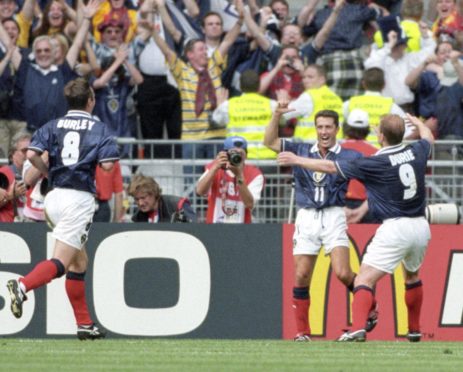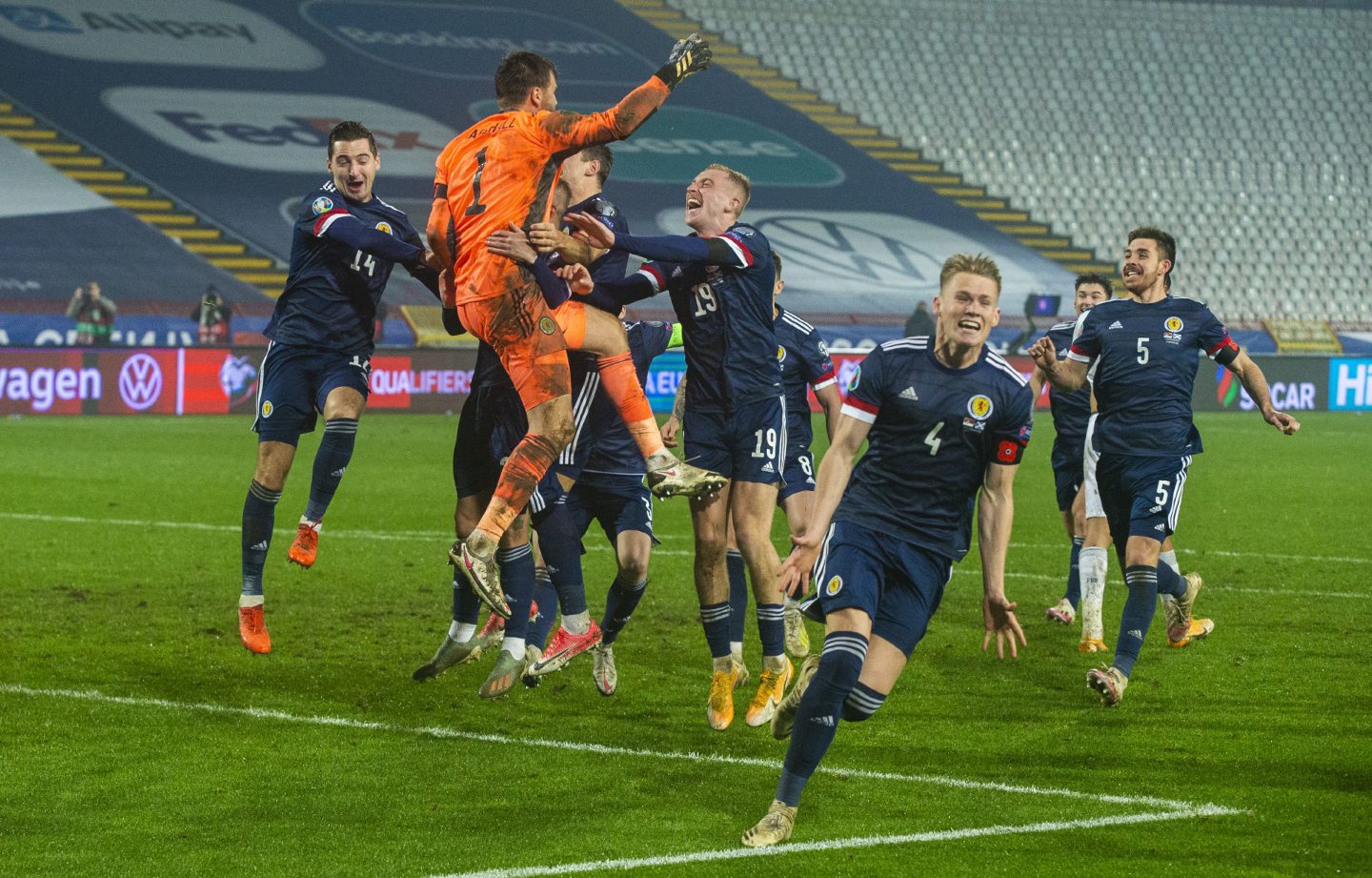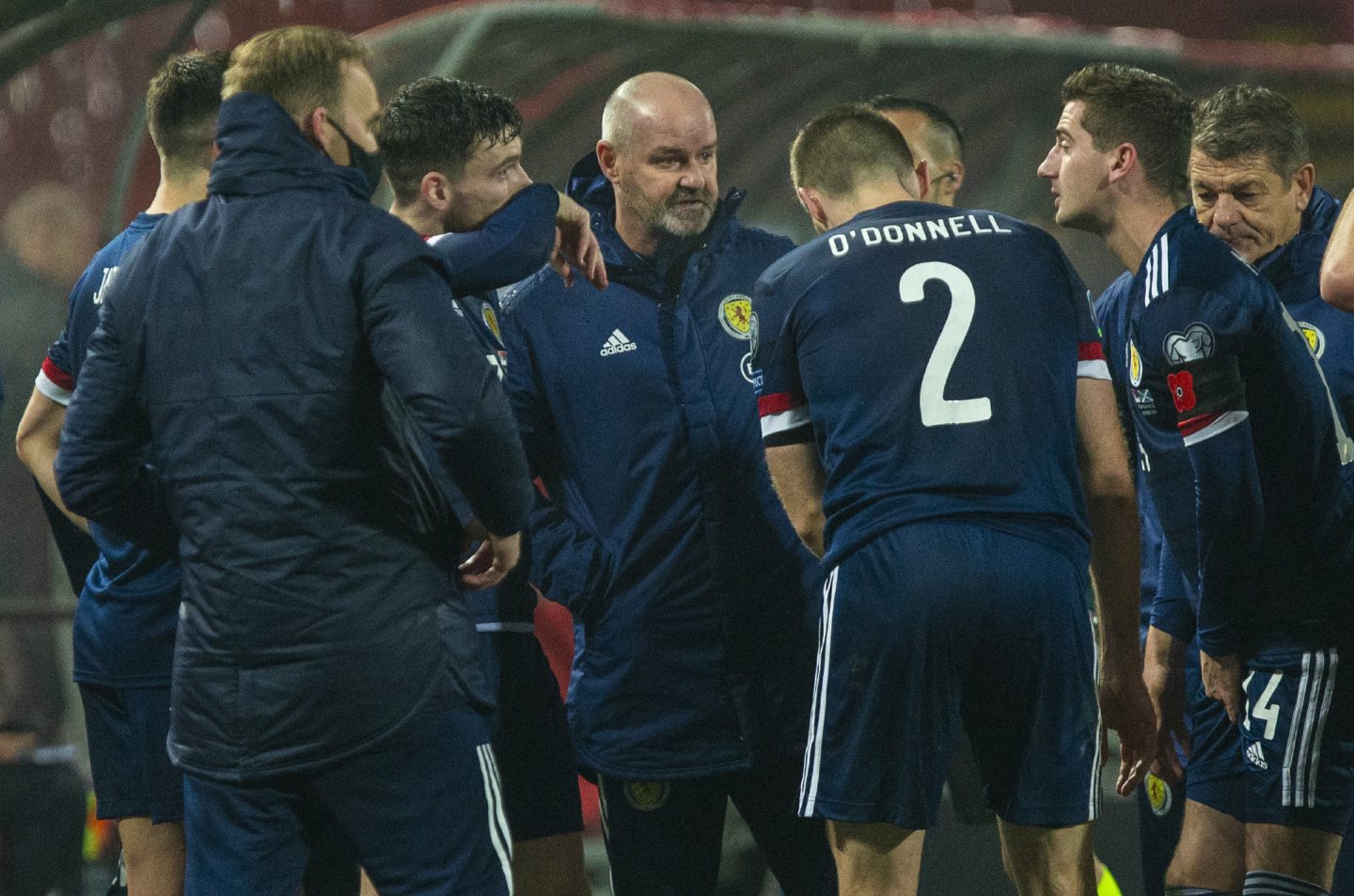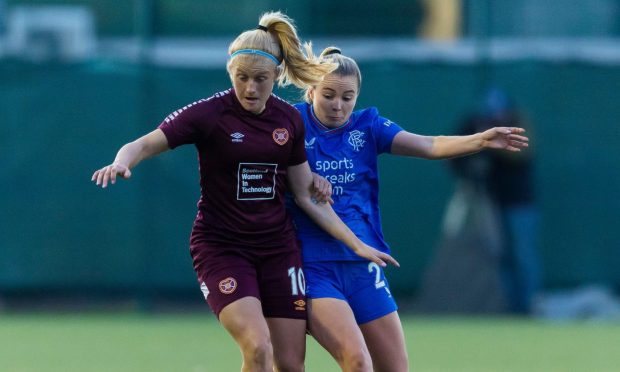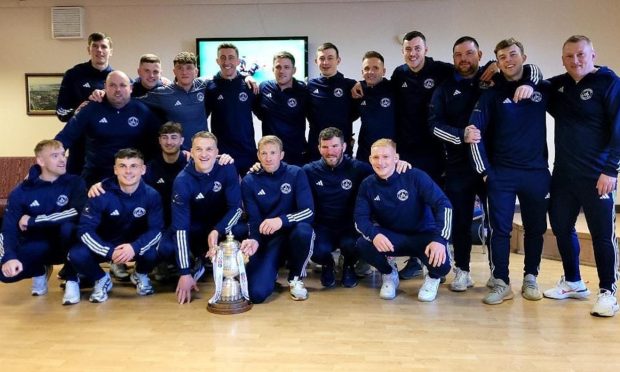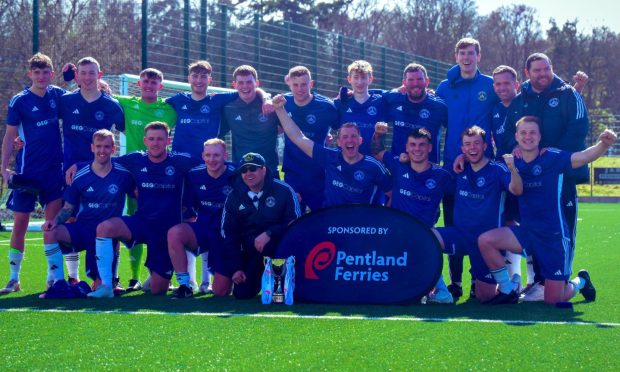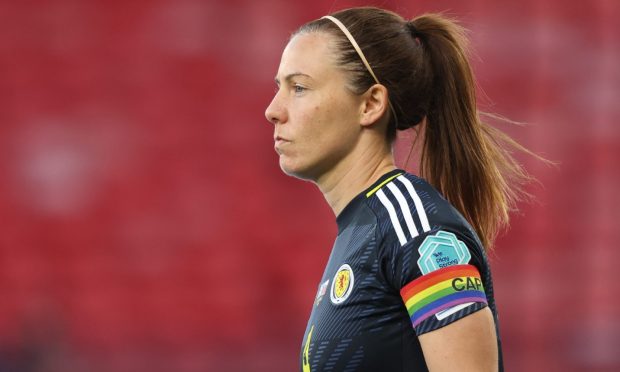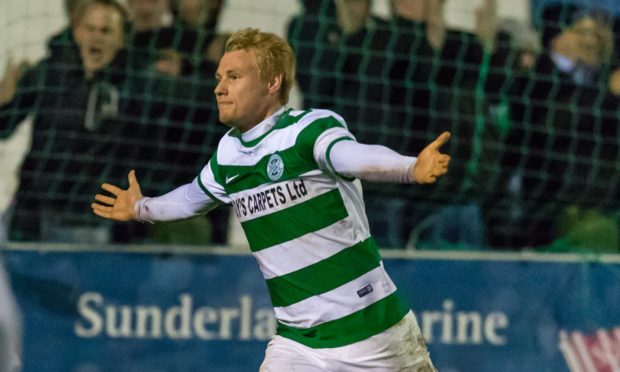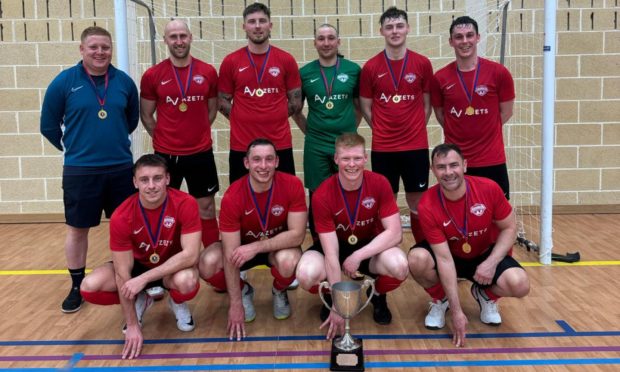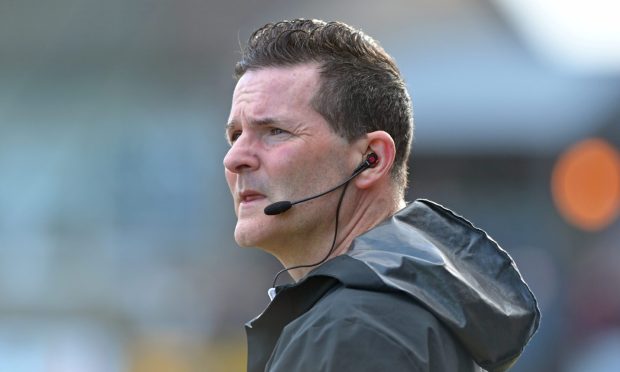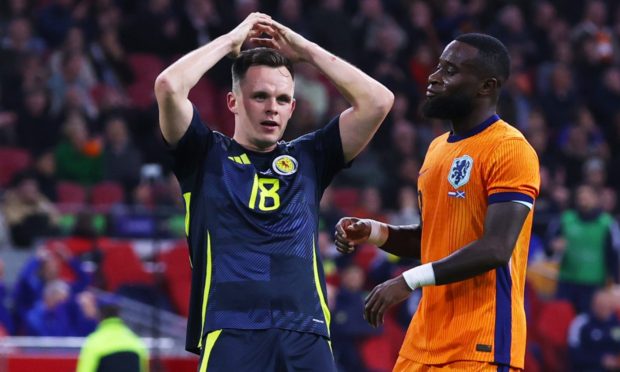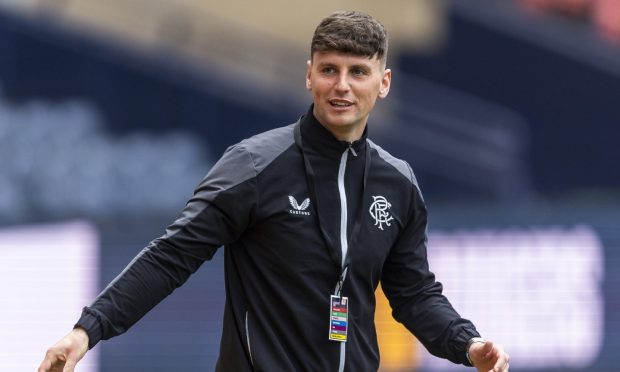Former Scotland international John Collins believes there was more pressure on Scotland’s five penalty takers in Serbia than when he slotted home from 12 yards against Brazil in the opening game of the 1998 World Cup.
Scotland will return to international football’s top table next summer when they face Croatia, England and Czech Republic in the group stages of the European Championships after a memorable night in Belgrade.
For a while, it looked like it might be another night of heroic failure for the national team when Luka Jovic headed home an equaliser in the 90th minute to cancel out Ryan Christie’s opener and send the play-off final into extra time.
But, after 30 additional minutes without a goal, Scotland produced five perfect penalties from the spot before David Marshall denied Aleksandar Mitrovic to complete a memorable victory.
Collins knows only too well the pressure of having to deliver from the penalty spot, having scored from 12 yards against Brazil in 1998.
He said: “I think the players who took the penalties in Serbia were under more pressure than I was at the Stade de France because of the 22-year wait.
“I can only give every single one of them so much credit.
“They held their nerve and stayed composed.
“They were well-struck penalties.
“We will remember them but David Marshall’s save at the end was simply superb.
“It was a climax to a stressful, but memorable evening.”
Collins, who won 58 caps between 1988 and 1999, admits he is surprised it has taken so long for Scotland to qualify for a major tournament, but believes they have made huge strides under manager Steve Clarke.
He said: “I don’t think anybody in the whole of Scotland would have imagined it was going to take us so long to return to a major tournament.
“I thought the team were outstanding in Serbia.
“They played so well in the first 80 minutes.
“Steve Clarke and his backroom team have done a wonderful job.
“What a finale with the tension and the penalty kicks under that pressure.
“It was a great save from David Marshall. That will live with us all for many, many years.
“The most important thing is it unites the nation again.
“We’ve got something to look forward to.”
Colllins sees no reason why the country shouldn’t be looking forward to next summer’s European Championships with confidence.
Scotland will begin the group stages against the Czech Republic at Hampden on June 14 before taking on England at Wembley four days later. They would finish the group against Croatia on June 22.
Collins added: “This team is making progress every time they play.
“They are a young, talented team. A lot of them are playing for big clubs and having successful seasons.
“So much of football is about confidence and they will have so much confidence after that result.
“The most important thing for me was the performance as we played with maturity.
“I thought we were going to sit back and Serbia would dominate the game, but the exact opposite happened.
“Steve deserves so much credit.
“Since coming in, he has had a specific game plan and system. He has worked at it and some games haven’t been pretty.
“They haven’t scored a lot of goals but as each game went by we have got slightly better and the confidence has grown.
“That has culminated in a fantastic performance in Serbia where they completely dominated the game.
“We pushed up the park, pressed them and never let them get started.
“We went on that pitch and our mindset was that we would dominate.
“I haven’t seen that from a Scotland team in a long time. To do that in such an important game made me so proud.”
